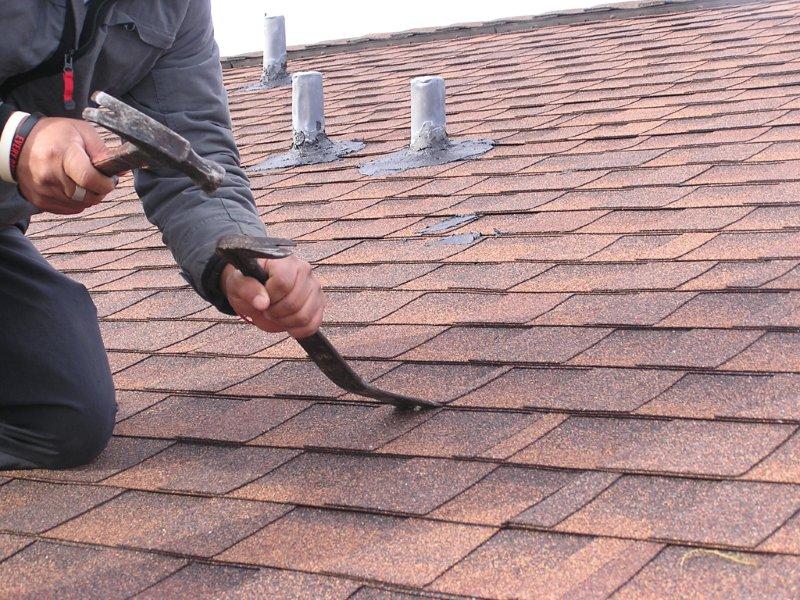Replacing a roof is a significant undertaking that impacts the overall safety, efficiency, and aesthetic of your home. When it comes to roof replacement, homeowners might consider the DIY approach to save money. However, this task requires substantial skills, knowledge, and preparation. In this comprehensive comparison, we’ll explore the pros and cons of DIY roof replacement versus hiring a professional, helping you make an informed decision.

DIY Roof Replacement: Pros and Cons
Pros:
- Cost Savings: The most apparent advantage of DIY roofing is cost reduction. By eliminating labor costs, you can potentially save a significant portion of the total expense, as professional installation can constitute a large part of roofing costs.
- Control Over Timeline: Handling the project yourself means you can work at your own pace and on your schedule. This flexibility can be particularly appealing if you have time constraints or prefer working in specific weather conditions.
- Personal Satisfaction: Completing a roof replacement on your own can provide a sense of accomplishment and the satisfaction of manual labor, knowing you personally improved your home.
Cons:
- Safety Risks: Roofing is hazardous work, especially for those who are inexperienced. Falls from roofs are a common and serious risk, and the lack of professional safety equipment and techniques can increase this danger.
- Quality Concerns: Professional roofers bring expertise and precision to their work, developed through years of training and experience. A poorly executed DIY roof might lead to mistakes that require expensive repairs or even a premature replacement.
- Time Investment: DIY projects often take much longer than professional jobs. The learning curve and lack of professional tools and techniques can extend the project duration, sometimes resulting in greater inconvenience.
- Warranty Issues: Many roofing material warranties require installation by certified professionals for the warranty to be valid. DIY installation might void these warranties, leading to potential losses in the future.
Professional Roofing Replacement: Pros and Cons
Pros:
- Expertise and Experience: Professionals have the training, skills, and experience to handle complex projects, adhere to building codes, and forecast potential issues. Their expertise also ensures that the roof installation meets industry standards.
- Safety: Professional roofers are trained to work safely on roofs. They use proper safety gear and adhere to safety protocols, significantly reducing the risk of accidents.
- Speed and Efficiency: Because of their skills and experience, professionals can complete roofing projects much faster than an amateur. This efficiency minimizes the disruption to your home and daily life.
- Warranty Protection: Many roofing contractors offer warranties for their workmanship, in addition to manufacturer warranties on materials that are only valid if installed professionally.
Cons:
- Higher Cost: The primary drawback of hiring professionals is the cost. Labor can significantly add to the project’s total expense, though this is balanced by the benefits of professional quality and speed.
- Less Control: When you hire professionals, you must rely on their schedule. During busy seasons, you might not get the immediate service you desire, and you’ll need to trust their judgment in project-related decisions.
Factors to Consider Before Making A Decision
- Complexity of the Roof: Simple roofs with few vents, chimneys, or skylights might be more within the realm of skilled DIYers. Complex roofs require professional attention to detail.
- Physical Ability and Knowledge: Roofing is physically demanding. Assess whether you have the physical health, stamina, and roofing knowledge necessary to complete the job safely and correctly.
- Local Building Codes: Professional roofers are familiar with local building codes and inspection requirements. DIY roofers must research and adhere to these codes to avoid legal issues.
- Tools and Equipment: Consider whether you have access to the necessary tools and safety equipment. Professional roofers come equipped with all required tools, which are often specialized and expensive.
- Risk vs. Reward: Evaluate the potential savings against the risks of DIY roofing. Mistakes can be costly and may ultimately require hiring a professional to rectify.
Conclusion
Choosing between DIY and professional roof replacement involves weighing personal skills and preferences against practical considerations like safety, cost, and time. For most homeowners, the risks and complexities of roof replacement make hiring a professional the safer and more efficient choice. However, for those with adequate skills, physical ability, and knowledge, DIY roofing can be a rewarding challenge.
Ultimately, the decision should prioritize safety and quality, ensuring that your home remains protected and that your roof investment is sound, both structurally and financially. Whether you choose DIY or professional roof replacement, make sure you are fully informed and prepared for the task ahead.
